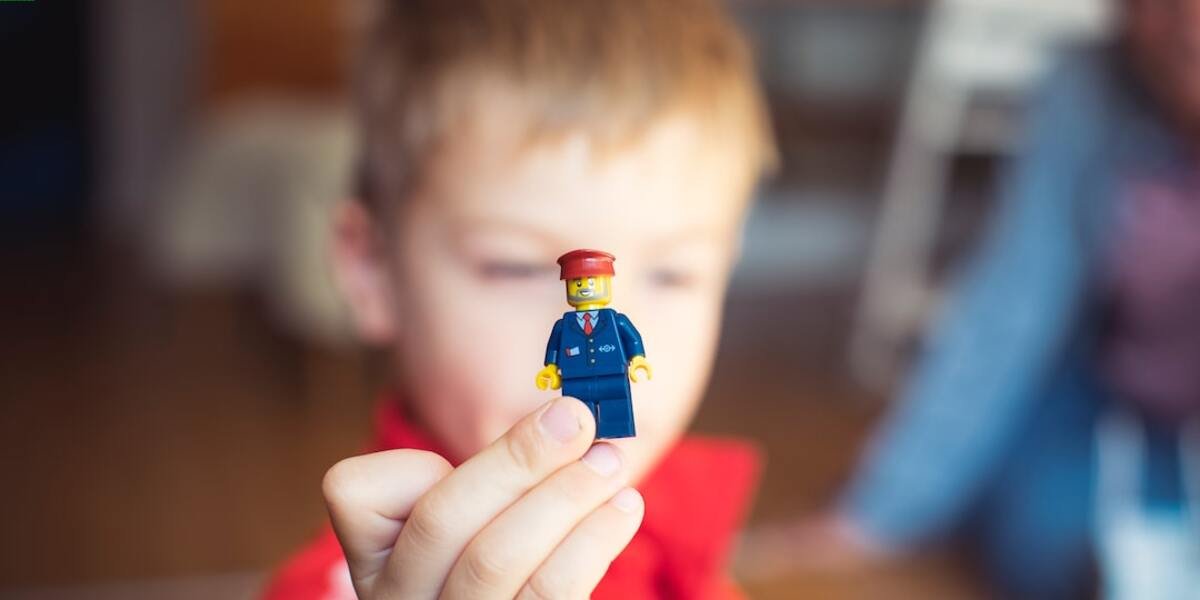Early Childhood Education Courses: Laying the Foundation for Bright Futures
Diving into the world of early childhood education courses can be both rewarding and transformative. The right choice can make a significant difference in children’s lives, fostering their development and cultivating an unquenchable thirst for knowledge. Early childhood is a crucial period as it sets the tone for future learning experiences; thus, investing time and resources in quality courses ensures that you are laying robust foundations.
These foundational years offer immense potential – like tiny buds just waiting to bloom under the nurturing care of skilled educators. With suitable early childhood education courses at their fingertips, parents or would-be teachers can help youngsters unlock this vast reservoir of possibility effectively. These well-structured programs provide proven strategies to facilitate understanding while instilling enthusiasm towards lifelong learning habits.
Did you know?
Did you know that Finland, known for its top-notch education system, doesn’t require children to start school until they’re 7? The emphasis is on early childhood education from ages 0-6 where the child’s joy of learning is nurtured.
Unveiling Core Components of Early Childhood Education Courses
The sudden rise in technology and its integration into education has brought a paradigm shift, especially related to early childhood education courses. These courses are no longer confined to traditional teaching methodologies but have incorporated cutting-edge educational technologies. Early childhood educators across the globe recognize that aligning their curriculum with modern techniques greatly enhances children’s learning experiences.
One of the core components of these high-tech classes includes Interactive Learning Environments (ILEs). With tools such as Smart Boards along with online resources like mobile learning apps and web-based interactive programs, toddlers discover new concepts through play-like scenarios. It fosters creativity while fostering fundamental skills for 21st-century learners – problem-solving, critical thinking and digital literacy.
Another crucial aspect is personalizing instruction based on individual child’s pace, style, and interest. Using adaptive e-learning platforms allows tutors to match learning activities according to every child’s unique requirements; hence augmenting each student’s progress rates significantly compared earlier approaches where ‘one-size-fits-all’ was prevalent.
Lastly comes monitoring progress via detailed data analytics provided by numerous EdTech platforms being utilized in early childhood education today- this offers unprecedented clarity about a young learner’s strength areas alongside pinpointing aspects needing special focus or intervention.
Even though comprehensive training for educators becomes essential before introducing them into classrooms given it presents enormous potential benefits within an impact sphere spanning from academic achievements right up till socio-emotional development among our youngest scholars.
Exploring Curriculum Structure and Content Delivery
Understanding the structural aspects and content delivery methods of early childhood education courses is vital in today’s fast-paced educational landscape. The curriculum structure within these courses serves as a blueprint for educators to prepare children for their academic journey effectively.
One aspect that significantly influences this field is technology integration, which has taken center stage in 2023. It paves the way for an interactive learning experience where lessons are tailored to fit each child’s individual needs, making sure no one gets left out or feels overwhelmed by traditional teaching methods.
Traditionally curated curriculums have been transformed into more interactive formats. For example, instead of reading from textbooks alone, young learners now use digital tools such as tablets or laptops loaded with engaging educational apps designed specifically targeting fundamental concepts like numbers, letters and colors recognition among other things.
Assessing Modes of Assessment and Student Evaluation
The process of assessing and evaluating students in early childhood education courses is a multi-pronged strategy. This approach ensures the wholesome development of young learners, striking a balance between their intellectual growth and emotional well-being.
Secondly comes portfolio assessment which includes collections of student work including drawings created by themselves to written pieces or problem-solving tasks linked to math or science learning objectives.
In addition to these traditional methods, technology integration has breathed new life into evaluation processes in 2023. Customized digital portfolios replace paper ones exhibiting ease-of-use for teachers while engaging parents more resourcefully through apps that record kid’s regular activities at school providing detailed analysis on developmental areas like cognitive skills, social-emotional maturity etcetera.
Moreover interactive games enhanced with AI algorithms aids significantly towards measuring competencies among kids especially those reluctant toward conventional testing environments due its informal nature yet strict adherence toward educational benchmarks set forth under Early Childhood Education standards relevant globally across various curriculums followed worldwide.
The Impact of Technology Integration in Early Childhood Education Courses
In the world of early childhood education, the integration of technology in courses has become an undeniable revolution. The digital age touches every sphere from classrooms to playgrounds, transforming how toddlers and preschoolers learn and interact with their environment. Early childhood education courses are now designed with a strategic blend of traditional teaching methods combined with innovative technological tools to keep pace with this global shift.
Harnessing technology in early childhood classes is not focused on replacing human-centered learning experiences but enhancing them drastically. From interactive storybooks that develop language skills through animated characters to using educational apps for mastering basic mathematics – tech-powered resources deliver a hands-on approach that piques curiosity among young learners like never before.
However, it’s crucial we understand that incorporating technology into these formative years goes beyond mere screen time or e-games diversity; it’s about inciting creative thinking, augmenting problem-solving abilities while fostering digital literacy right at its inception stage. Therefore designing effective training modules as part of early childhood education courses ensures educators adeptly facilitate seamless transitions between physical play-based activities and digitally enhanced explorations.
Incorporating Digital Tools in Teaching Young Learners
In the digital age, technology integration in early childhood education courses has become a subject of significant focus. As educators navigate this process, effectively incorporating digital tools when teaching young learners becomes paramount.
Embracing modern technologies can transform traditional classrooms into interactive learning environments that stimulate and engage young minds. From eBooks to educational apps, these robust resources provide an enhanced understanding of complex concepts through engaging audio-visual representations.
A key aspect is selecting appropriate digital tools for early learners. It’s important to ensure they are not too complicated or intricate but instead should be user-friendly and relevant to the curriculum being taught.
Moreover, integrating tactile devices like smartboards permits interactivity while fostering motor skill development among youngsters—a critical aspect of their growth at this stage. This approach facilitates active participation from every child making them feel more involved in the learning process.
Subsequently, introducing coding classes as part of early childhood education courses may seem ambitious; however it presents endless potentialities for children who could evolve with essential analytical thinking skills necessary for future prospects involving technology-based jobs.
Digital storytelling platforms also garners attention due its capacity to captivate little listeners’ imagination whilst improving language acquisition skills through animated narratives bringing storybooks alive!
Documenting academic journeys using e-portfolios aids teachers track progress over time allowing individualized feedback based on each student’s performance giving insights about areas requiring improvement thereby customizing further instruction tailored according each learner’s needs.
Enhancing Interactive Learning Through EdTech Innovations
EdTech innovations are dramatically enhancing interactive learning in early childhood education courses. When teachers integrate technology into their classrooms, they’re able to create an engaging and dynamic environment that captures children’s imaginations, encouraging active participation.
Moreover, EdTech provides for personalized instructions tailored according to each child’s strengths and weaknesses . Children can progress at their own pace without feeling pressured by a one-size-fits-all curriculum. Interactive software adapts automatically based on individual responses promoting self-paced growth .
Additionally , there lies immense potential in virtual reality (VR) technologies which have started stepping into the realm of early childhood education courses . They provide immersive educational experiences where youngsters feel part of what they’re studying rather than being mere observers outside looking in.
Pathways to Professional Advancement with Early Childhood Education Courses
In today’s technologically advanced society, upskilling through early childhood education courses offers a clear path to professional advancement. More than just an opportunity for rigorous academic understanding, these programs provide practical guidance on integrating technology into the educational process – a critical need in 2023 and beyond.
Early childhood educators are constantly faced with the challenge of crafting effective learning environments that cater to diverse needs. Yet they also have at their disposal numerous digital tools which can drastically enhance teaching efficacy when applied correctly.
Courses focused on early child development now emphasize the importance of technology integration within curriculum planning and classroom management strategies. Teachers who adopt such methods position themselves as leaders at the forefront of innovation in modern pedagogy. Embracing this change is not merely about staying relevant; it involves shaping young minds using contemporary tools thus preparing them adequately for a tech-savvy future world.
Investing time and effort into mastering these new age skills via early childhood education courses equips one with valuable knowledge directly applicable to career progression pathways within both private sector businesses or public school systems besides personal growth routes like freelance consulting or initiating start-ups specifically catering around edutech requirements.
So whether you’re an established teacher looking to adapt your expertise towards ever-evolving industry norms or someone considering making a jump into this rewarding field, remember that technological proficiency isn’t optional anymore – it’s essential! Early Childhood Education Courses are gateways towards empowering oneself while enriching lives along your chosen career trajectory in profound ways hitherto unimagined!
Credentials and Certifications: Stepping Stones for Educators
Credentials and certifications in early childhood education have become imperative stepping stones for educators. They not only provide expertise but also pave the path to professional advancement. Today’s climate emphasizes continuous learning, urging every educator to stay abreast of recent developments in pedagogy.
One considerable shift witnesses is the integration of technology into education; from learning apps on tablets to virtual reality classroom experiences, it’s vital that teachers are well-versed and capable with these tools.
Early childhood education courses play a pivotal role here by familiarizing educators with concepts like adaptive learning programs or digital lesson planning software. These technical skills foster an inclusive environment where each child progresses at his pace while still satisfying desired educational outcomes.
Additionally, such courses delve deep into subjects beyond traditional curriculum boundaries – think STEM projects designed specifically for toddlers or age-appropriate lessons on cyber ethics! Being exposed to this broader spectrum enables you as an educator not just adapt better but even innovate within your classrooms!
We have seen employers increasingly prefer candidates possessing specific credentials relating to technology-enhanced teaching methodologies which early childhood education programs often offer – another reason why pursuing one might give you that competitive edge!
Take certification exams seriously since they test both theoretical knowledge gained during coursework along practical employment aspects (like implementing tech strategies real-time). Remember most importantly though: keep brushing up regularly newly released instructional technologies help grow professionally remain industry-relevant throughout your career journey!
Career Progression Opportunities Post Course Completion
The completion of early childhood education courses opens up an array of career advancement opportunities in the dynamically evolving field. Notably, these pathways aren’t restricted to traditional teaching roles only; technology integration is essentially transforming how we educate our youngsters.
Firstly, becoming an ‘Early Childhood Educator’ becomes achievable after completing such a course. In this role, you’ll be responsible for nurturing and developing young minds aged 0-8 years through playful yet productive activities that contribute significantly towards their cognitive growth.
Then there’s the opportunity to become a ‘Childcare Center Director,’ where your leadership skills will ensure smooth administrative operations while maintaining high-quality education standards for young children within turbulent tech-driven environments. This requires not just knowledge about core educational principles but also about technologically enhanced pedagogical methods.
Alternatively, if your creativity sparks when innovating engaging content rather than delivering it – then being a ‘Curriculum Developer’ can be apt as well! You could shape dynamic curriculums imbued with technological elements aimed at making learning more interactive and impactful using digital resources like virtual reality (VR), augmented reality (AR), or gamified applications.
A post-course progression may also lead you into specialized areas like being an ‘Educational Consultant.’ Herein lies exciting prospects wherein you’d guide institutions on incorporating effective e-learning strategies or recommend cutting-edge EdTech tools for comprehensive child development.
Conclusion
In closing, investing in early childhood education courses is akin to laying the bricks for a child’s skyscraper of success. The heights they’ll reach are directly proportional to the quality and breadth of education received at their impressionable age. So why not ensure these foundations are as solidly set and meticulously crafted as possible?
Don’t stop here! Continue your exploration on our website where you’ll find an abundant reserve of information aiming to support both parents and educators on this incredible journey of shaping future generations. From understanding different teaching methodologies, navigating challenges or celebrating milestones – we’ve got it all covered under one virtual roof for you.







